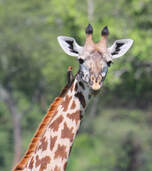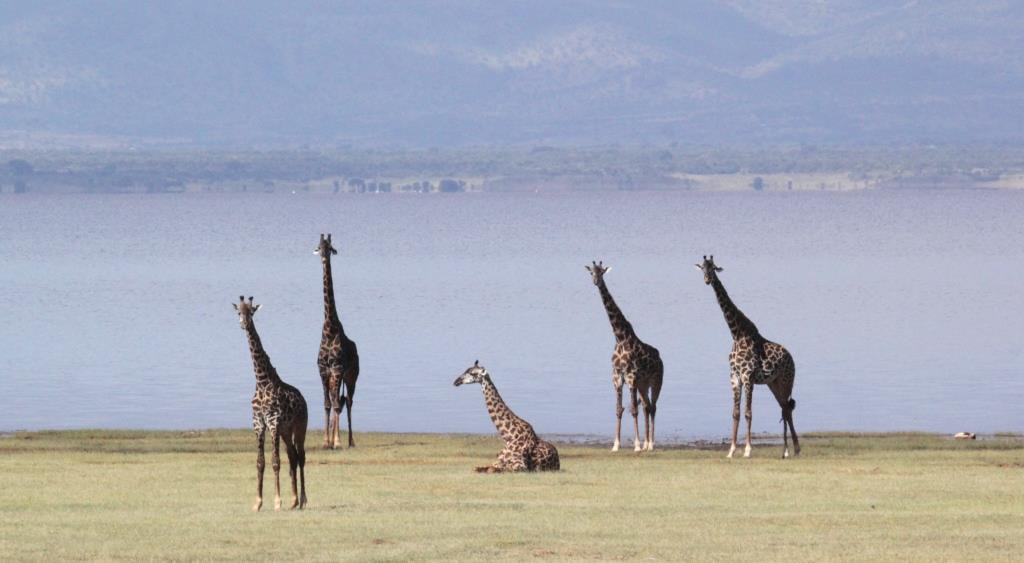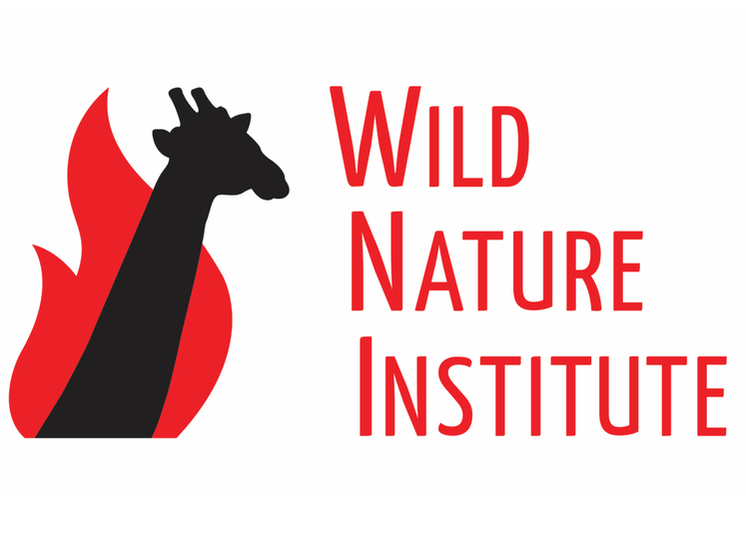|
Giraffes that group with others live longer ZÜRICH - A 5-year study of more than 500 adult female giraffes in Tanzania found that individuals that grouped with more other females had higher survival. An international research team led by Dr. Monica Bond, research associate at University of Zurich and Wild Nature Institute Principal Scientist, published their results this week in Proceedings of the Royal Society B. The study examined the relative effects of sociability, the natural environment, and human factors on survival of this charismatic megaherbivore, and showed giraffes that are observed in larger groups have higher survival, and that social factors outweighed human and environmental factors. “Giraffe group formations are dynamic and change throughout the day, but adult females maintain many specific friendships over the long term,” said Bond. “Grouping with more females, called gregariousness, is correlated with better survival of female giraffes, even as group membership is frequently changing. This aspect of giraffe sociability is even more important than attributes of their non-social environment such as vegetation and nearness to human settlements.” Bond’s team studied wild free-ranging giraffes over multiple years and documented their social behaviors using network analysis algorithms similar to those used by big data social media platforms. The friends network of giraffes uses mathematics to describe their social patterns, and the team found giraffes are surprisingly similar to people and other primates in their social habits, where greater social connectedness matters. Humans with extensive social networks can take advantage of many more opportunities relative to someone with a more restricted network. Likewise, chimpanzees and gorillas live in communities where ties between many individuals can be advantageous because they facilitate movements among groups and with familiar individuals, which facilitates flexibility of feeding strategies. It seems to be beneficial for female giraffes to connect with a greater number of others and develop a sense of larger community but not a strong sense of exclusive subgroup affiliation. Why might living in larger groups bring survival benefits for giraffes? Grouping behavior may increase adult survival for species where adults themselves are prey, as larger groups can better detect predators or deflect predation from themselves. But adult female giraffes are far less vulnerable to natural predation than are their calves. Aside from poaching, the main culprits of adult female giraffe mortality are likely to be disease, stress, or malnutrition, all of which are interconnected stressors. “Social relationships can improve foraging efficiency, and help manage intraspecific competition, predation, disease risk, and psychosocial stress,” noted Dr. Barbara König of the University of Zurich and senior author of the study. Female giraffes may be seeking out and joining with an optimal number of other females in order to share and obtain information about the highest-quality food sources. Other benefits to living in larger groups might be lowering stress levels by reducing harassment from males, cooperating in caring for young, or simply experiencing physiological benefits by being around familiar females. Features of a female giraffe’s non-social environment were less correlated with survival than her gregariousness, but the study also found that females living closer to towns had lower survival, possibly due to poaching that originates in these areas. Previous research in our study population revealed differences in giraffe behaviors near towns. Closer to towns, adult female home ranges were larger in size and female groups with calves avoided towns. For the past decade the international team has been conducting the largest study of a giraffe population in the world. The vast scale of their study area in the Tarangire region of Tanzania spans more than a thousand square kilometers and includes multiple social communities, each with about 60 to 90 adult female members. Thus, the study was able to disentangle individual from community level influences on survival. The study is also unique in combining social network analysis and modeling of vital rates such as survival in a sample of hundreds of individuals.  Wild Nature Institute thanks our wonderful financial supporters who fund our giraffe field work, including Sacramento Zoo, Columbus Zoo and Aquarium, Tulsa Zoo, Tierpark Berlin and Zoo Berlin, Cincinnati Zoo and Botanical Garden, Zoo Miami, GreaterGood.org Project Peril, and Save the Giraffes.
0 Comments
Your comment will be posted after it is approved.
Leave a Reply. |
Science News and Updates From the Field from Wild Nature Institute.
All Photos on This Blog are Available as Frame-worthy Prints to Thank Our Generous Donors.
Email Us for Details of this Offer. Archives
July 2024
|
|
Mailing Address:
Wild Nature Institute PO Box 44 Weaverville, NC 28787 Phone: +1 415 763 0348 Email: [email protected] |
|


 RSS Feed
RSS Feed
